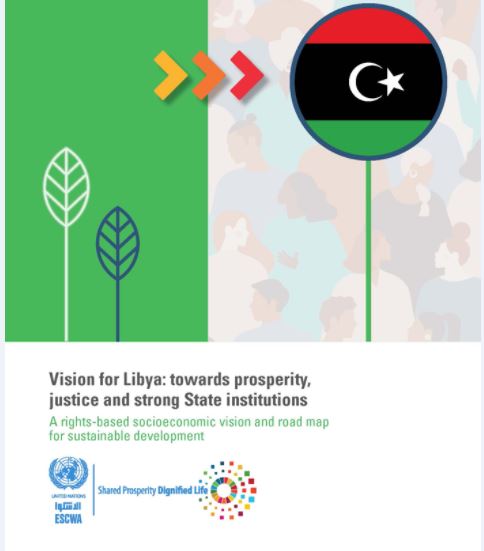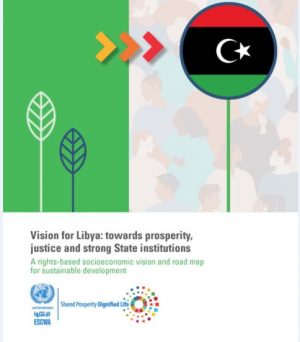By Sami Zaptia.
London, 4 October 2021:
As part of efforts to promote a sustainable peace process in Libya and prevent a renewed relapse of violence, the United Nations Economic and Social Commission for Western Asia (ESCWA) has launched on Saturday a “Vision for Libya: Towards a State of Prosperity, Justice and Institutions”, which is the most comprehensive and deepest in terms of addressing the economic, social and institutional policies needed to chart Libya’s future path.
The vision is based on a human rights framework that ensures that a united Libya is preserved, respects cultural diversity, promotes balanced decentralization, and benefits Libya’s human wealth to build institutions capable of managing development, and natural resources for sustainable growth and well-being for citizens. The vision highlights the complementary relationship between civil and political rights and social, economic and cultural rights on the one hand, and the development process on the other, particularly during the rebuilding phase of the State.
The vision provides outlines of a new social contract that balances the rights and duties of members of society, draws the powers and responsibilities of the authority, and is based on the pillars of: the State of Justice, Citizenship and Identity, Justice and Social Protection, an alternative diverse economic model, institutional reform, transparency and good governance.
“This vision reflects the compatibility and aspirations of the various components of Libyan society, and comes at a precise time for Libya’s future to support what has been achieved so far on the political track,” said ESCWA Executive Secretary Rola Dashti. “The vision presents the deepest and most comprehensive policies and alternatives for decision makers in Libya, ensuring that violence does not re-emerge, and that sustainable peace and comprehensive development that does not neglect anyone will be achieved.”
The vision is part of libya’s economic and social dialogue project, which aims to support the transition from stopping the conflict to building sustainable peace.
ESCWA predicted in June that peace in Libya could lead to significant economic gains, not only for Libya but also for neighbouring countries, worth up to US$ 162 billion by 2025. It has already released a study entitled “The Economic Cost of the Conflict in Libya”, in which it warned of worsening economic losses caused by the war in Libya, where it exceeded US$ 576 billion from the beginning of the conflict until 2020.








